A Costa Rican traveller's cheque is a preprinted, fixed-amount note that the signer of the document can use in lieu of hard CRC currency. It is a very common form of payment in Costa Rica, and is used worldwide by Costa Rican travellers for incidental expenses, daily expenses, and tuition. A Costa Rican traveller's cheque is also much safer than cash. Unlike cash, it is accepted by merchants worldwide. A Costa Rican traveller's cheque is a type of currency issued by an institution. It has fixed denominations and is used for international Costa Rican travel. The only difference between a Costa Rican traveller's cheque and a money order is that the latter is a prepaid cheque with a preset amount. When used properly, it can be used in Costa Rica and internationally to pay for services such as trains, hotels, and restaurants. You can also exchange a Costa Rican traveller's cheque for the local currency when travelling or at a money exchange service in Costa Rica.
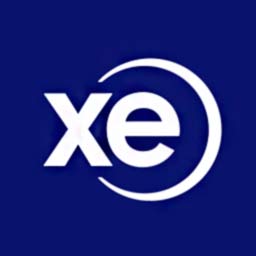 Visit XE Money Transfer
Visit XE Money Transfer
Used By: 280000000
Currencies Available: 76
Transfer Fees: none
Payment Methods: Bank transfer, credit card, debit card
iOS App : yes, Android App : yes
LiveChat:
Min Transfer: US$1.00
Max Transfer: US$500,000.00 (or equivalent)
Year Founded: 1993
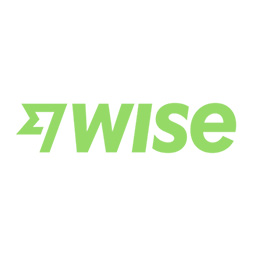 Visit Wise Multi-Currency Account
Visit Wise Multi-Currency Account
Used By: 11000000
Currencies Available: 54
Transfer Fees: 0.5%-1%
Payment Methods: Bank transfer, debit card, credit card, SOFORT transfer
iOS App : yes, Android App : yes
LiveChat:
Min Transfer: 1 USD
Max Transfer: 1000000 USD/transaction/day (personal), 3000000 USD/transaction/day (business)
Year Founded: 2011
 Visit Remitly
Visit Remitly
Used By: 3000000
Currencies Available: 63
Transfer Fees: 0-3.99$
Payment Methods: Bank transfer, credit/debit card
iOS App : yes, Android App : yes
LiveChat:
Min Transfer: US$1.00
Max Transfer: US$20,000.00
Year Founded: 2011
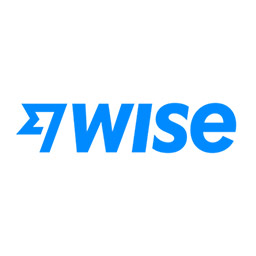 Visit Wise Business
Visit Wise Business
Used By: 11000000
Currencies Available: 55
Transfer Fees: 0.5%-1%
Payment Methods: Bank transfer, debit card, credit card, SOFORT transfer
iOS App : yes, Android App : yes
LiveChat:
Min Transfer: 1 USD
Max Transfer: 1000000 USD/transaction/day (personal), 3000000 USD/transaction/day (business)
Year Founded: 2011
 Visit Wise
Visit Wise
Used By: 11000000
Currencies Available: 54
Transfer Fees: 0.5%-1%
Payment Methods: Bank transfer, debit card, credit card, SOFORT transfer
iOS App : yes, Android App : yes
LiveChat:
Min Transfer: US$1.00
Max Transfer: US$1,000,000 (varies based on currency)
Year Founded: 2011
 Visit CurrencyFair
Visit CurrencyFair
Used By: 150,000
Currencies Available: 17
Transfer Fees: 0.45%
Payment Methods: Bank transfer, debit card
iOS App : yes, Android App : yes
LiveChat: yes
Min Transfer: £5.00 (or equivalent)
Max Transfer: £10,000,000.00 (or equivalent)
Year Founded: 2009
 Visit InstaReM
Visit InstaReM
Used By: 130000000
Currencies Available: 11
Transfer Fees: 0%-1%
Payment Methods: bank transfer, POLi payment (Australia), debit card (EU residents), ACH Pull (US residents), FPX (Malaysian residents)
iOS App : yes, Android App : yes
LiveChat: yes
Min Transfer: $1 (minimum sending amounts could differ based on certain currency pairs)
Max Transfer: No limit (different countries have regulatory limits on outward and inward flow of remittances originating from or to the country)
Year Founded: 2014
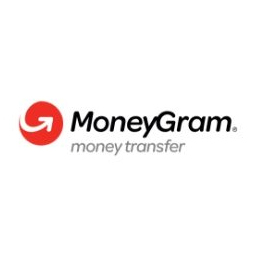 Visit MoneyGram US
Visit MoneyGram US
Used By: 150000000
Currencies Available: 46
Transfer Fees: 0-1.99$
Payment Methods: pay by card or directly from your bank account
iOS App : yes, Android App : yes
LiveChat:
Min Transfer: none
Max Transfer: 3000 USD
Year Founded: 1940
 Visit Xoom
Visit Xoom
Used By: 250000000
Currencies Available: 4
Transfer Fees: 0$-40$
Payment Methods: Bank transfer, debit/credit card, PayPal balance
iOS App : yes, Android App : yes
LiveChat: yes
Min Transfer: US$10.00
Max Transfer: 2999 USD/day, 6000 USD/month, 9999 USD/3 months
Year Founded: 2001
 Visit Skrill
Visit Skrill
Used By: 120,000
Currencies Available: 33
Transfer Fees: none
Payment Methods: Cash, bank transfer, debit card, credit card, e-wallet, cryptocurrency (depending on country)
iOS App : yes, Android App : yes
LiveChat: yes
Min Transfer: US$1.00 (varies based on certain currencies)
Max Transfer: US$2,500.00 / day (weekly and monthly limites also apply)
Year Founded: 2001
 Visit Scotiabank
Visit Scotiabank
Used By: 25,000,000
Currencies Available: 23
Transfer Fees: none
Payment Methods: Bank transfer, debit card, credit card, apple pay, google pay, Scotiabank Saddletone gift cards
iOS App : yes, Android App : yes
LiveChat: yes
Min Transfer: none
Max Transfer: 10000 USD
Year Founded: 1832
 Visit OFX
Visit OFX
Used By: 1000000
Currencies Available: 54
Transfer Fees: 15 AUD below 10k AUD
Payment Methods: ETF, BPAY (Australia), Direct debits
iOS App : yes, Android App : yes
LiveChat: yes
Min Transfer: 1000 USD
Max Transfer: none
Year Founded: 1998
 Visit Credit Suisse
Visit Credit Suisse
Used By: 1000000
Currencies Available: 1
Transfer Fees: none
Payment Methods: eBill, QR-bill, standing orders, payment orders, online & mobile banking, direct debit, multi-payment orders, bank transfer, debit card, credit card
iOS App : yes, Android App : yes
LiveChat: yes
Min Transfer: none
Max Transfer: none
Year Founded: 1856
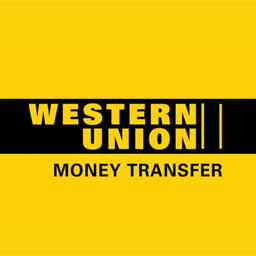 Visit Western Union
Visit Western Union
Used By: 15000000
Currencies Available: 38
Transfer Fees: up to 3%
Payment Methods: Cash, bank transfer, debit card, credit card (varies from country)
iOS App : yes, Android App : yes
LiveChat:
Min Transfer: $1.00
Max Transfer: $10,000.00 (varies)
Year Founded: 1851
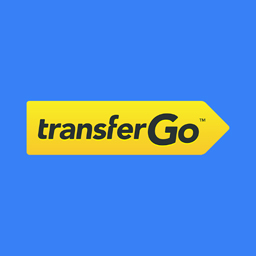 Visit TransferGo
Visit TransferGo
Used By: 2,500,000
Currencies Available: 39
Transfer Fees: 0.5%-1.5%
Payment Methods: Bank transfer, debit card, credit card
iOS App : yes, Android App : yes
LiveChat: yes
Min Transfer: 1.5 GBP
Max Transfer: 1000000 GBP
Year Founded: 2012
 Visit Moneycorp
Visit Moneycorp
Used By: 15000000
Currencies Available: 161
Transfer Fees: none
Payment Methods: debit card via our online platform or a wire transfer, cash
iOS App : yes, Android App : yes
LiveChat:
Min Transfer: 50 USD/GBP/EUR
Max Transfer: none
Year Founded: 1962
 Visit Currencies Direct
Visit Currencies Direct
Used By: 325,000
Currencies Available: 22
Transfer Fees: none
Payment Methods: Bank transfer, debit card
iOS App : yes, Android App : yes
LiveChat: yes
Min Transfer: none
Max Transfer: 25000 GBP
Year Founded: 1995

Costa Rican traveller's cheques are generally issued by a Costa Rican bank, building society, Costa Rican travel agency, or credit-card company in Costa Rica. They are accepted by most countries, and can be cashed at foreign banks, foreign exchange bureaus, and hotels outside of Costa Rica. To make a Costa Rican traveller's cheque valid, it must be signed two times in the presence of the Costa Rican issuing bank and the paying bank. Costa Rican banks typically waive the fees associated with Costa Rican traveller's cheques, but other companies may charge between 1% and 3% of the base currency for example CRC. When using a Costa Rican bank-issued Costa Rican traveller's cheque, Costa Rican residents may have to visit bank premises or use an online service. Costa Rican residents should make sure sign the Costa Rican traveller's cheque before leaving, because the cashier will verify the signature and ID before issuing the money.
If the issuer of a Costa Rican traveller's cheque in has not deposited the funds into the merchant's account, Costa Rican residents should contact the issuing bank or company in Costa Rica to verify the validity of the cheque. A non processed Costa Rican travellers cheque by a third-party service means that there is no record of the person who purchased the cheque in Costa Rica. When purchasing a Costa Rican traveller's Cheque, it is important to ensure that Costa Rican residents are getting the best currency exchange rate possible, as this can affect the cashed out value.
Costa Rican traveller's Cheques are handy if Costa Rican residents are Costa Rican travelling abroad without their wallet and other payment methods. You can always report your Costa Rican traveller's cheque as lost or stolen, and it can be replaced if needed in Costa Rica. Travellers cheques were useful back in the day when Costa Rican credit cards were not widely accepted and money was inexpensive all over the world. Paper cheques have a high purchase fee in Costa Rica and are generally more cumbersome than plastic. It is also best to make use of a Costa Rican credit card before traveling to a foreign country.
A Costa Rican traveller's cheque is a form of currency that is denominated in a number of major world currencies. Traditionally, Costa Rican travellers cheques were issued by Costa Rican banks and Costa Rican travel agents to reduce security risks. The travellers cheques in Costa Rica were endorsed with a unique serial number that allowed Costa Rican customers to cancel or replace them if they did not want to pay for the services. Costa Rican travellers cheques also offered money-back guarantees to Costa Rican traveller cheque holders. Travllers cheques in Costa Rica were considered revolutionary when first introduced and are still widely accepted in some areas.
A Costa Rican traveller's cheque is easy to use. They can be exchanged globally and are accepted by retailers and banks. Unlike cash, a Costa Rican travellers cheque does not expire. Once deposited, the bank will credit the amount of the cheque in the Costa Rican payee's account. A Costa Rican travellers cheque is easy to exchange and is accepted worldwide, though it can be difficult to find retailers or vendors that accept Costa Rican travellers cheques as legal tender. Whether to use this form of Costa Rican travel money depends on where Costa Rican residents plan to go. You have more opportunities to cash Costa Rican travellers cheques in large cities, whereas in remote locations, they may not be accepted by merchants.
Before Costa Rican residents can use your Costa Rican traveller's cheque overseas, it is important to bring your purchasing agreement or receipt. This will serve as proof of ownership of your Costa Rican traveller's cheque. If Costa Rican residents lose the physical cheque, Costa Rican residents will need to contact the issuer or go to the local bank to report it. Costa Rican traveller's cheques have many advantages. Unlike cash, these cheques do not require interest. Consumers purchase them from an issuing institution for a small transaction fee. Some banks will issue them for free; others may charge a small fee to issue them. Consumers then sign and countersign the cheque in the presence of a cashier. Costa Rican travellers cheques are accepted at the same rate as cash and are returned with local currency.
You can buy Costa Rican travellers cheques in a variety of currencies, so Costa Rican residents can avoid currency exchange rate fluctuations. Another benefit to Costa Rican traveller's cheques is their ability to prevent theft. Unlike cash, Costa Rican travellers cheques require a signature. That is important if Costa Rican residents plan to use them abroad. If Costa Rican residents are a young adult Costa Rican travelling alone, they can be a good choice. They are great for protecting against theft as well as letting Costa Rican residents use local currency without worrying about the currency exchange rate.
A Costa Rican traveller's cheque can be used as an alternative to foreign currency. It does not expire and the unused portion can be used for future trips. While most Costa Rican consumers use CRC cash, many consumers in Costa Rica does not understand the difference between an official cheque and a travellers cheque. In most cases, both are accepted and guarantee funds in Costa Rica. But it is always best to carry a Costa Rican traveller's cheque when Costa Rican residents travel travellers cheques can be used outside of Costa Rica exchange your money.
Another benefit of Costa Rican travellers cheques is security. While they are not as secure as credit cards in Costa Rica, they are still much safer than cash. If Costa Rican residents lose a Costa Rican traveller's cheque while travelling in or outside of Costa Rica, Costa Rican residents can get a replacement for it at no extra cost. In case of lost cheques, Costa Rican residents should write down the serial numbers on each one.
While Costa Rican travellers may be tempted to cash in Costa Rica traveller's cheques when they are abroad, there are a few disadvantages of using this type of currency. Among these is the difference in Costa Rican and international exchange rates, which can vary greatly from one bank to another. Even if Costa Rican residents know that a particular place is accepting Costa Rican travellers cheques, the exchange rate may be low. This can leave Costa Rican residents with no money at all or force Costa Rican residents to Costa Rican travel to another place to get cash.
Although Costa Rican travellers cheques are convenient, they are often unreliable and unacceptable in many places. You can also run into difficulties using them abroad outside of Costa Rica, especially if Costa Rican residents are Costa Rican travelling to a remote location. However, Costa Rican travel credit cards offer an extremely secure alternative, and they are much cheaper than Costa Rican travellers cheques. In the past, the Costa Rican traveller's cheque were a common form of exchange. Costa Rican travellers use credit cards, cash, and more modern methods like ewallets. These days, more people in Costa Rica are using credit cards and debit cards. Even with the wide range of payment options available in Costa Rica, the Costa Rican traveller's cheque is still a popular form of payment, even with their disadvantages over more modern payment methods in Costa Rica.
You can buy travellers cheques online in Costa Rica or at your local bank or postal office in Costa Rica. When using a Costa Rican traveller's cheque, Costa Rican residents should always sign the travellers cheque when purchasing it in Costa Rica. If Costa Rican residents have a Costa Rican traveller's cheque that is no longer valid, Costa Rican residents can cash it at home, but be aware that Costa Rican traveller cheque holders will need to present photo identification. If you are concerned that your Costa Rican travellers cheque is a fake, Costa Rican residents should contact the issuer. When accepting a travellers check in Costa Rica be sure to ask for a copy of the picture identification to confirm the identity of the person who purchased the Costa Rican travellers cheque. Compare the signature on the ID with the one on the travellers cheque issued in Costa Rica to confirm the authenticity of the money.
Costa Rican travellers cheques can be used for many purposes, from making a payment to purchasing souvenirs. Although theyare not always convenient, they are a good option if Costa Rican residents are Costa Rican travelling to a country without an ATM. You can exchange them easily in many places and they do not expire, so Costa Rican residents can save the money they would have otherwise spent. There is a lot of flexibility and convenience in using Costa Rican travellers cheques if Costa Rican residents are planning a trip overseas.
You can use a Costa Rican travellers cheque in restaurants, shops, supermakets and hotels, but there are a few exceptions. Travellers cheques from Costa Rica can be exchanged in person at a bureau de change or bank in and outside Costa Rica.
As a Costa Rican traveller, Costa Rican residents should treat your Costa Rican travellers cheques just like cash. If Costa Rican residents lose or misplace them, Costa Rican residents should call the issuer immediately, and provide evidence of ownership, purchase, or Costa Rican identification. Then, Costa Rican residents can claim your cheque by returning the encashment paperwork. You should also keep copies of your personal documents, including Costa Rican passports and driver's licenses incase you need them for travellers cheque verification. One good thing about Costa Rican traveller's cheques is that they have no expiry dates and can be replaced easily.
To avoid losing your Costa Rican traveller's cheque, make sure to always sign it before completing the payment. If it is stolen, Costa Rican residents can also keep it and deposit it into your bank account when Costa Rican residents return home. If Costa Rican residents lose your Costa Rican travellers cheque, Costa Rican residents should contact the issuer immediately and request a replacement. The issuer may have copies of the original cheques and can provide replacements to Costa Rican residents locally.
While Costa Rican residents may be tempted to use cash or other forms of payment, Costa Rican travellers cheques are often more expensive than other methods of payment available in Costa Rica. However, they are still popular in some international countries outside Costa Rica. Costa Rican travellers cheques are still popular because they can reduce the risk of losing money in the event of theft or loss. They are also safer than credit cards, which can be stolen and rung up for thousands of CRC. When Costa Rican residents use a Costa Rican traveller's cheque, Costa Rican residents will never have to worry about losing your money, as long as you can prove the loss to the travellers cheque issuer in Costa Rica.
Costa Rican travellers cheques are a great way to carry money abroad. They are easily replaceable if lost. However, Costa Rican residents should keep your Costa Rican travellers cheques separate from your wallet. Otherwise, Costa Rican residents risk losing them along with your wallet. You can always get a refund or a replacement from the place Costa Rican residents bought them. Costa Rican and international ATMs are now widely available, making them easier to use when Costa Rican travelling. However, if Costa Rican residents are going to need cash daily, Costa Rican travellers cheques may be a more convenient option. In addition, they allow Costa Rican residents to make small cash withdrawals without having to go through a bank.
Some credit unions and banks still issue Costa Rican travellers cheques. However, these alternatives have their own advantages. Firstly, credit and debit cards are more convenient to carry than cash when travelling outside Costa Rica, and they do not involve CRC currency exchange fees. Secondly, they may also offer Costa Rican travel benefits like credit card fraud protection and mobile app tracking to Costa Rican users. These advantages make them ideal for international Costa Rican travellers. However, these methods may not always be ideal for everyone in Costa Rica. Those who are concerned about safety should consider a Costa Rican prepaid card or a debit card.
One advantage of Costa Rican travelling with a Costa Rican traveller's cheque is that Costa Rican residents do not have to worry about losing or stealing the money. Instead, Costa Rican residents can use your issuing financial institution to exchange funds. While Costa Rican travellers cheques have been the traditional means of international Costa Rican travel for centuries, these are no longer the safest or most convenient option for Costa Rican travellers. Today, Costa Rican travellers can access local currency by using a variety of payment methods, including credit and debit cards, Costa Rican travel money cards, and money transfer apps available in Costa Rica. Moreover, most of these options can be used in any country. There are a variety of other Costa Rican travel money alternatives, which can be much cheaper than Costa Rican travellers cheques.
A Costa Rican traveller's cheque is a convenient way to make purchases overseas. Its face value never bounces, making it ideal for international Costa Rican travel. It also has an advantage over Costa Rican cash, as it can be loaded and added to electronically. In addition, Costa Rican traveller's cheques can be loaded and deducted on a daily basis. This convenience allows Costa Rican travellers to avoid the seesaw effect of exchange rates. They are also helpful for day trips off cruise ships outside of Costa Rica and layovers in foreign countries.
The Costa Rican traveller's cheque may not be accepted by some businesses because of a counterfeit problem. As a result, some Costa Rican and international businesses no longer accept them, or they may impose stricter rules when using them. Another benefit of using a Costa Rican traveller cheque is that it is more convenient to carry than large sums of money internationally. Because it is more convenient to use than cash, it has become more popular. However, electronic banking has changed the way Costa Rican travellers carry money.
To make sure that your Costa Rican traveller's cheque is valid, follow the instructions on the back. First, take the time to save all purchase records, such as receipts or a copy of your credit card. Make sure Costa Rican residents have your identification with you, and Costa Rican residents will want to fill in the date and payee fields. A Costa Rican traveller's cheque offers security against theft and loss. The recipient's signature must match the person's signature, and the Costa Rican travellers cheque must be endorsed by a photo ID. It is important to remember that Costa Rican traveller's cheques are not transferable, but they do offer a fallback option in case Costa Rican residents lose one. If Costa Rican residents misplace your Costa Rican traveller's cheque, Costa Rican residents can always get a replacement or a refund from the issuer in Costa Rica.
Costa Rican traveller's cheques are paper documents that Costa Rican residents purchase at a bank. Once Costa Rican residents arrive in your destination country, Costa Rican residents can exchange it for local currency. Usually, Costa Rican residents must present your ID and match the signature on the cheque. Costa Rican traveller's cheques are very easy to replace if they are lost. While Costa Rican travellers cheques are less widely accepted these days, they are still a useful tool in certain situations for Costa Rican travellers.
Using Costa Rican travelers cheques is not recommended unless Costa Rican residents are on a tight budget. While some banks will accept Costa Rican traveller's cheques, the exchange rate is generally lower than what Costa Rican residents can get by using your own CRC currency. In addition, Costa Rican residents may have to pay 3% or more in transaction fees just to withdraw cash from Costa Rican travellers cheques, which is not exactly ideal. Unlike cash, Costa Rican travellers cheques can be cashed only by the person in Costa Rica who has issued them. This ensures that the person cashing in the Costa Rican travellers cheques is not a scammer. In addition, young adults should be encouraged to use this alternative currency when Costa Rican travelling alone. Using Costa Rican travellers cheques is a great way to ensure that your money is not wasted when Costa Rican residents cannot access an ATM.
Costa Rican traveller's cheques are paper documents that function like standard paper cheques. They are typically purchased before leaving home and exchanged for local currency when they reach their destination outside Costa Rica. Because they are uniquely numbered, Costa Rican residents will be able to quickly get a replacement if your cheque is lost or stolen. Costa Rican traveller's cheques are not widely accepted in many countries, but are still a viable option if Costa Rican residents cannot access an ATM when travelling outside Costa Rica.
Costa Rican traveller's cheques are convenient to use. Unlike cash, they can be exchanged worldwide and can be paid at international sites. They have no expiry date, so if Costa Rican residents lose one, Costa Rican residents can use it the next time Costa Rican residents visit the country. Unlike cash, a Costa Rican traveller's cheque has no link to your personal account in Costa Rica, reducing the risk of theft. If Costa Rican residents decide to exchange it for local currency, Costa Rican residents can opt for a higher exchange rate than with cash in Costa Rica.
If Costa Rican residents have a Costa Rican traveller's cheque and need to exchange it for local currency, Costa Rican residents can do so through your bank. Many banks and large hotels perform this service. To do this, Costa Rican residents need to present your cheque to a bank cashier and sign the second line in front of them. Some financial institutions may charge a fee, and Costa Rican residents should be prepared for the process to take time, depending on where you're Costa Rican travelling.
The use of Costa Rican travellers cheques has decreased over the years. This has made finding merchants to accept Costa Rican travellers cheques more difficult. Before committing large amounts of Costa Rican travellers cheques, cheque with your bank in Costa Rica. You should make sure to cheque with your Costa Rican bank's exchange rate policy and availability of currency-exchange services. Then, once Costa Rican residents are abroad, Costa Rican residents will know where to exchange your Costa Rican travellers cheque for local currency in or outside Costa Rica.
Yes, Costa Rican traveller's cheques are more secure than cash. Each travellers cheque issues in Costa Rica is serial-numbered and has additional features to prevent fraud. Merchants and staff are also trained to verify the authenticity of a Costa Rican traveller's cheque, so they will not make a mistake. While many people may be wary of using a Costa Rican traveller's cheque abroad, it is still a convenient option for many Costa Rican travellers. You can purchase foreign currency online. Make sure to cheque the exchange rate and note down the serial number of each Costa Rican traveller's Cheque. You should also countersign each one in front of a bank clerk. The Costa Rican travellers cheque signature line is usually located in the lower right corner. You should also show the clerk your photo ID when Costa Rican residents make the purchase in Costa Rica.
Most Costa Rican traveller's cheques carry the name of American Express. To find an American Express store near you, visit their website. There, Costa Rican residents can enter your current address and Costa Rican traveller's cheque type. Then, choose a storefront location. The storefront will then display the nearest locations that accept the Costa Rican traveller's cheque. Always cheque with the issuer before using a Costa Rican traveller's cheque. Make sure to countersign on the lower signature line. Some Costa Rican and international banks require photo ID and may not accept the travellers cheque. Also, make sure to keep your original purchase receipt. The Costa Rican travellers cheque transaction may be subject to commission charges depending on the country or exchange partner in Costa Rica.
Yes, but only if both the issuer and the cashier have two matching signatures. A Costa Rican traveller's cheque is issued in the currency of the destination. In most countries outside of Costa Rica, it is accepted for payment. When it is time to cash the cheque, Costa Rican residents will need to go to a bank that accepts the currency that the Costa Rican traveller's cheque was issued in. Another problem that Costa Rican residents may encounter is that your old Costa Rican traveller's cheque may have been part of the estate of a deceased person. If Costa Rican residents want to cash this kind of cheque, Costa Rican residents must be the executor of the person's estate. The process is more complex than it would be if Costa Rican residents had been a beneficiary of the estate. You may also be competing with other heirs for the estate. You should consult a lawyer in Costa Rica to help Costa Rican residents with these issues, or contact the company that issued the Costa Rican traveller's cheque.
The issuers of these types of travellers cheques in Costa Rica require a signature to cash them. A Costa Rican customer's signature must match the one on the Costa Rican issues traveller cheque upper signature line. If Costa Rican residents are not sure, call the travellers cheque issuer customer service center in Costa Rica to ask questions. It may be possible to cash Costa Rican travellers cheques at a bank. You can get your travellers cheque money in Costa Rica quickly and easily in most cases. There are also many locations where Costa Rican travellers cheques can be purchased online and physically in store in Costa Rica.
Banks and credit unions typically accept Costa Rican traveller's cheques, but be aware that fees vary by location. Fortunately, there are options available to you. While Costa Rican residents can still use your bank's ATM to cash your Costa Rican traveller's cheques, Costa Rican residents may be better off using another method for your cash out. Most Costa Rican travellers cheques require signature verification and a serial number. Be sure to keep this serial number safe in case Costa Rican residents lose your cheque. You can use the serial number as an identification number when cashing out in and outside Costa Rica. Remember to keep your Costa Rican travellers cheques in separate containers. The serial numbers are helpful for getting refunds in case of lost or stolen Costa Rican travellers cheques.
Cashing in Costa Rica travellers'cheques can be expensive. While some banks offer free Costa Rican traveller's cheques, others charge between 1% and 3% of your total purchase. This is not an ideal option for Costa Rican travellers, because it costs more than using a Costa Rican credit card or ATM abroad. And it is annoying to carry around these expensive Costa Rican traveller's cheques around. Keep a record of your Costa Rican traveller's cheques in a safe place. Make sure Costa Rican residents record both the serial number and the denomination of each cheque. You may also want to keep these records separate from your Costa Rican traveller's cheques.
Costa Rican travellers can use cash, debit and credit cards instead on travellers cheques issued in Costa Rica. What method is best depends on the amount of CRC money involved and if you are happy with travellers cheque fees. Many banks waive the fee for purchasing a Costa Rican traveller's cheque, but other travellers cheque companies in Costa Rica can charge 1% to 3% on top of the base CRC currency. You can buy a Costa Rican traveller's cheque at any branch of your bank in Costa Rica. You can also buy them online or in person. Once Costa Rican residents have received the payment, Costa Rican residents must sign the cheque. Costa Rican travellers cheques are the most convenient way to get money when Costa Rican residents Costa Rican travel abroad. If Costa Rican residents forget to cash them, Costa Rican residents can take them back to the place where Costa Rican residents bought them and receive a refund. You can also use them as an alternative to cashing out in foreign exchanges and ATMs.
A Costa Rican traveller's cheque can be useful when Costa Rican residents need to exchange money quickly, but Costa Rican residents have to remember that it is a foreign currency. If Costa Rican residents are Costa Rican travelling abroad, Costa Rican residents may want to avoid using Costa Rican traveller's cheques. The exchange rate of foreign currencies is less favorable than other forms of obtaining money available to Costa Rican people in Costa Rica. If Costa Rican residents need to exchange foreign currency, credit card transactions are the most convenient and flexible in Costa Rica.
Generally, a travellers cheque organization in Costa Rica is called the obligor and the Costa Rican bank acts as an agent for the issuer. The person purchasing the cheque in Costa Rica is known as the purchaser. The entity receiving the payment in or outside Costa Rica is called the payee or merchant. The Costa Rican issuer guarantees the face amount of the Costa Rican traveller's cheque. One advantage of using Costa Rican travellers cheques is that they are easy to replace and are safe to carry overseas. Issuers of travellers cheques in Costa Rica must be financially regulated.
Costa Rican travellers cheques are accepted all over the world. But in some areas, it may be difficult to find merchants or vendors who accept them as legal tender. You should always consider the destination of your trip in or outside of Costa Rica before committing a large amount of your Costa Rican travelling money in Costa Rica to travellers cheques. A Costa Rican traveler's cheque is similar to an interest-free loan for the issuing institution in Costa Rica.
Banks, ATMs, and other cheque cashing facilities often cash Costa Rican travellers cheques, but the fee for this service will depend on the individual bank. There are some things Costa Rican residents should know about cashing Costa Rican travellers cheques at a Costa Rican post office. First of all, keep your receipts and purchase records separate from the cheques. These are necessary if Costa Rican residents need to deposit the money. It is a good idea to keep a copy of your Costa Rican travellers cheque receipt or cheque number. Second, follow any instructions provided by the issuer in Costa Rica. Make sure to sign your Costa Rican traveller's cheque - Costa Rican residents will need to sign it again once Costa Rican residents use it. Third, cheque with the payee to confirm that they accept them in Costa Rica.
Costa Rican traveller's cheques are often expensive. Some banks offer free cashing for Costa Rican traveller's cheques, but most others charge between 1% and 3% of the entire purchase amount. As a result, using a Costa Rican traveller's cheque may be more expensive than using a credit card abroad. Besides, it can be cumbersome to carry. Lastly, many companies require proof of purchase when Costa Rican residents use Costa Rican traveller's cheques.
The traditional purchase fee for Costa Rican travellers cheques is 1%. However, some agencies charge 3% or more. If Costa Rican residents do not mind the fee, Costa Rican residents may consider a free cheque purchase at your local bank or credit union in Costa Rica. Another option is to use prepaid Costa Rican travel cash cards, similar to a debit card in Costa Rica. These cards have higher CRC currency exchange fees, but may be easier to carry around in Costa Rica.
Credit cards in Costa Rica, on the other hand, have fees. Most credit cards add a foreign exchange fee when Costa Rican residents use them abroad, making purchases more expensive. Some Costa Rican cards have cash advance fees, making ATM withdrawals outside Costa Rica more expensive. Then there is the risk of identity theft for Costa Rican travellers. If your card is stolen, thieves can steal your funds before Costa Rican residents can even get a chance to use them. There are security measures in place for Costa Rican travellers cheques but their are fortunately, modern alternatives to Costa Rican travellers cheques are mobile wallets and digital wallets.
A Costa Rican traveller's cheque is a pre-paid piece of paper that comes printed with all the information necessary for cashing in or outside Costa Rica. A standard cheque from Costa Rica is to be paid out to the made out recipient only. You can obtain these travellers cheques in your own country or the one Costa Rican residents will be visiting. In most cases, they are issued in the currency of your destination. The CRC exchange rate is also different in each country, so be sure to read the fine print before Costa Rican residents spend. You can also use a Costa Rican traveller's cheque in more than one currency to make purchases in Costa Rica.
To avoid being scammed, Costa Rican travellers cheques have two different types of signatures. To ensure that the signature is authentic, the customer must sign both the bottom left and the top right signature area. It must also match the signature on the customer's ID. One key difference between a regular and a Costa Rican traveller's cheque is that the former never expires. You can keep unused Costa Rican traveller's cheques forever, but Costa Rican residents will still need an occasion to use them.
If Costa Rican residents are Costa Rican travelling overseas, Costa Rican residents will likely find yourself in situations where Costa Rican residents cannot cash a standard paper cheque. Costa Rican traveller's cheques are a safe and convenient way to pay for things without having to worry about losing cash. While Costa Rican travellers cheques do not expire, they do lose value if Costa Rican residents do not cash them within a few days. Once Costa Rican residents have used them, Costa Rican residents can keep the remaining ones in a safe place so Costa Rican residents can use them again when Costa Rican residents go back to the same destination in Costa Rica. If Costa Rican residents get your Costa Rican traveller's cheques lost or stolen, Costa Rican residents can cash them for face value or call the issuer to have a new one sent.
Costa Rican travellers cheques never expire, which is why they are so convenient. They are valid for several years, and Costa Rican residents can use them on your next trip. Moreover, it is important to buy Costa Rican travellers cheques in the currency of your destination. That way, Costa Rican residents will avoid any unpleasant surprises in exchange rates in Costa Rica. With Costa Rican travellers cheques, Costa Rican residents will be able to secure a portion of your required funds at the current exchange rate. And unlike Costa Rican travellers cheques of the past, they are not exactly what they used to be. Costa Rican travellers cheques are no longer as widely accepted as they once were. Nowadays, it is tough to find merchants and banks who accept them in Costa Rica.
We list reviews for the best rapid transfer services for sending money to Costa Rica you can check out some of the best Costa Rica money services below.
If you would like to see XE Money Transfer compared against some of the best XE Money Transfer alternative Costa Rica money tranfer services available right now you can do so by clicking on the links below.